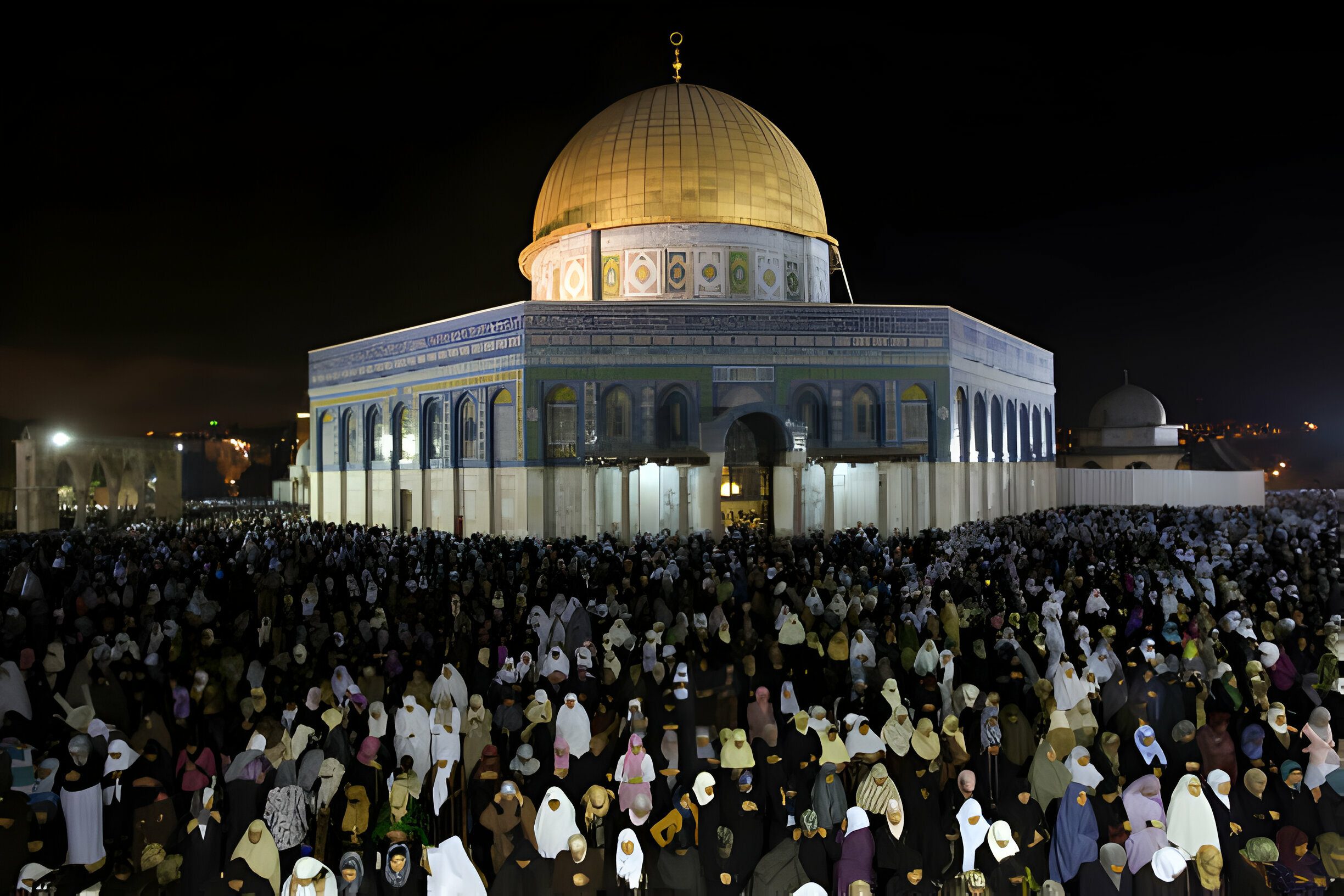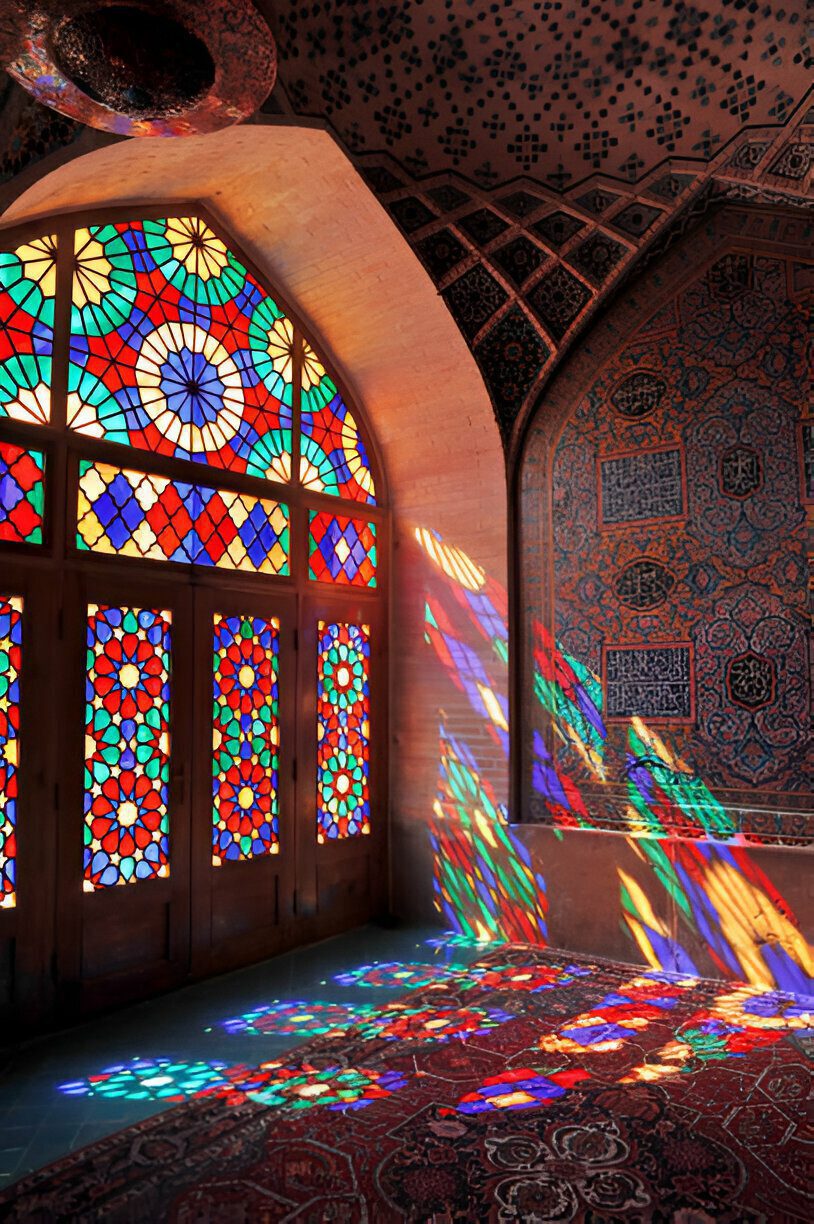What is Wudu?
The word wudhu comes from the Arabic word وَضَاءَة (Wadho’ah), which means good and beautiful.
Wudhu, by terminology, means the act of ritual washing of specific parts of our body in a specific way to remove the ritual impurities. Although wudhu itself is a type of worship which entails certain rewards, wudhu can also be seen as a prerequisite to performing other ritual acts of worship, such as performing the tawaf (circling of the ka’bah) for umrah and hajj, holding the mushaf (Quran) and, most importantly, performing our five daily prayers.
Allah s.w.t. says in the Quran:
يَـٰٓأَيُّهَا ٱلَّذِينَ ءَامَنُوٓا۟ إِذَا قُمْتُمْ إِلَى ٱلصَّلَوٰةِ فَٱغْسِلُوا۟ وُجُوهَكُمْ وَأَيْدِيَكُمْ إِلَى ٱلْمَرَافِقِ وَٱمْسَحُوا۟ بِرُءُوسِكُمْ وَأَرْجُلَكُمْ إِلَى ٱلْكَعْبَيْنِۚ
“O believers! When you rise for prayer, wash your faces and your hands up to the elbows, wipe your heads and wash your feet to the ankles”
(Surah Al-Maidah, 5:6)
How to Make Wudu
Wudu According to the Shafi`i and Hanafi Madh-hab
Bismi-llâh, wa-l-hamdu lillâh, wa-s-salâtu wa-s-salâmu `alâ rasûli-llâh
Wudu according to the Shafi`i Madhab
Conditions for the Validity of Wudu‘
- Islām.
- The age of understanding. (A child reaches the stage of mumayyiz (discerning) when he can eat, drink and clean himself after using the toilet unassisted.)
- Cleanliness from menstruation and postnatal bleeding.
- Being free from that which prevents the water from reaching the skin.
- Nothing should be upon the limb that will change the [qualities of the] water.
- Knowledge of it (wuduʾ) being obligatory.
- Not to assume the fard (obligatory) acts as sunnah (recommended). (For the general public, it is suffice to know some of its acts are fard and some are sunnah.)
- Pure water.
- Entering of the time [of salah], for a person who constantly remains in the state of impurity. (Wuduʾ should be performed after the entering of the salâh’s time for fard salâh or at a particular time for sunnah salâh (e.g. duhâ))
- Continuity, for a person who constantly remains in the state of impurity.
(NOTE: Both 9 & 10 apply to the one who constantly remains in the state of impurity, for example, the one who suffers from urinary incontinence)
Obligatory Acts of Wudu
- Intention. (The person performing ablution either intends removing a state of hadath (ritual impurity) or purification for the salah.)
- Washing the face. (The face is from the point where the hairline usually begins to the chin in length, and from ear to ear in width.)
- Washing both hands and arms including the elbows. (Washing both arms completely, up-to and including the elbows once.)
- Wiping any part of the head. (The minimum is to wipe part of a single hair, provided this part does not hang below the limit of the head (i.e. below the hairline).)
- Washing the feet including the ankles.
- Tartîb (to observe the above-mentioned sequence).
NOTE: Intention is to intend something simultaneously with the action; its place is in the heart. To make a verbal intention is a sunnah; its time is at the beginning of washing the first portion of the face. Tartîb (sequence) is to observe the sequence of the Wuduʾ, such that no latter limb of Wuduʾ should precede a former limb.
Invalidators of Wudu‘
- Anything that exits from either the front or the rear private parts, whether wind or anything else [whether common or uncommon, such as a worm or stone], except semen.
- Loss of intellect (i.e. the loss of the ability to distinguish) through sleep or other causes (e.g. drunkenness, insanity), except sleep while firmly seated on the ground. (Drowsing and daydreaming do not break Wudu’. Among the signs of drowsing is that one can hear the words of those present, even though without comprehension.)
- Skin-to-skin contact between an adult (Adult means the age that usually stirs up sexual desire in a person. Wudu’ will not break if this is only found in one of the two.), non-mahram (marriageable), male and female without any barrier. (The Wudu’ will break even if they touch without sexual desire, or unintentionally, and even if be with the tongue or a malfunctional surplus limb. Touching does not include contact with teeth, nails, hair or a severed limb. Wuduʾ is also broken by touching an aged person or a corpse of the opposite sex.)
- Touching the private parts of a human with the palm or inner surface of the fingers (i.e., Those parts of the palm which touch each-other when the hands are put together palm to palm).
Forbidden Actions Whilst in Minor Impurity (i.e., In Need of Wudu‘)
- Salâh (Prayer)
- Tawâf (Circumambulation around the Ka`bah)
- Touching the Mushaf (Written script of the Qur’ân)
Carrying the Mushaf (It is not permissible to touch the Mushaf, whether its writing, the spaces between its lines, its margins, binding, the carrying strap attached to it, or the bag or box it is in. However, it is permissible to carry a Mushaf in baggage and to carry money, rings, or clothes on which Qurʾān is written.)
The Sunnah Way to Perform Wudu‘
- Recite ta`awwudh: I take refuge in Allah from the accursed Shaytân (to recite A`ûdhu billâh completely), and basmalah: In the name of Allâh, Most Merciful, Ever Merciful (to recite Bismillâh completely).
- Wash the hands up-to and including the wrists three times.
- Use the miswâk (toothstick), and then rinse the mouth and nose out three times, with three handfuls of water. One takes in a mouthful from a handful of water and snifts up some of the rest of the handful into the nostrils thrice.
- Wash the entire face, from the point where the hairline usually begins to the chin in length, and from ear to ear in width, three times. It is obligatory to wash all facial hair – inner, outer, as well as the skin beneath the hair, whether the hair is thick or thin – such as the eyebrows, moustache and so forth except for a thick beard.
- Wash both arms completely, up-to and including the elbows, three times. It is sunnah to pass the fingers through each other.
- Wipe the head by passing the wet hands from the front of the head, sliding the paired hands to the back up to the nape of the neck, and then return them to point of commencement, three times.
- Wipe the inside of the ears with the fingertips and their outside with the thumbs, with fresh water, three times.
- Wash the feet up-to and including the ankles, three times. Allow the water to pass between the toes by using the little finger of the left hand, beginning with the little toe of the right foot, and ending with the little toe on the left.
- During wudu‘, it is sunnah:
– to wash the limbs successively,
– to begin with the right when washing the arms and legs, but both hands, cheeks, or ears, are washed simultaneously,
– to begin with the top of the face and not to splash the water onto it,
– to avoid splashing water onto oneself,
– to face the qiblah, not to talk except for a necessity, and
– not to waste water
Wudu according to the Hanafi Madhab
The importance of Wudhu:
Being in a state of Wudhu is:
1 – Fardh (obligatory) – when (a) performing Prayer [and funeral Prayer], (b) performing the prostration of recitation of the Qur’an and (c) touching the Qur’an.
2 – Wajib (necessary) – when performing Tawaf (i.e. circumambulation) around the Ka’bah [in Makkah].
3 – Sunnah (recommended) – when going to bed.
4 – Mustahab (encouraged) – when Wudhu breaks [even if none of the above needs has arisen].
Before performing Wudhu:
1 – Begin with “بسم الله الرحمن الرحيم” (meaning “In the Name of Allah, the Most Beneficent, the Most Merciful”), as anything done without mentioning the name of Allah is void of blessings. Mere washing cleanses the physical body, while invoking the name of Allah cleanses the spirit and soul. Also, it ensures that angels do not leave your presence as long as your Wudhu is not broken.
2 – Begin with the right parts [before the left parts for every limb of Wudhu].
3 – Ensure that water runs over the skin [for every limb of Wudhu that necessitates washing]. Simply wiping over these limbs is not sufficient.
4 – Remove anything that prevents water from reaching the skin of the parts of the body which must be washed. For example, paint on hands and arms, nail polish on fingernails, thick and waxy lipstick, etc. Henna or Mehndi are allowed.
5 – Remove rings if they are tight and may prevent water from running over the skin beneath.
6 – Remove hair extensions and wigs.
7 – Remove dirt from corners of the eyes and wash the area.
8 – Clean your teeth, preferably with a Miswak.
The Fardh (obligatory) actions of Wudhu:
Commanding the believers to perform Wudhu, Allah says (interpretation of the meanings): “O you who have believed, when you rise to [perform] Prayer, wash your faces and your forearms to the elbows and wipe over your heads and wash your feet to the ankles.” [Al Qur’an 5:6]
Therefore, the Fardh (obligatory) elements of Wudhu are:
1 – Washing the face. The area of the face that must be washed include: (a) from the very top edge of the face (i.e. the forelock) to below the chin and (b) up to the beginning of the two ears. All areas in between them must be washed.
2 – Washing the two arms. All areas from the fingertips to the elbows, including the elbows, must be washed.
3 – Wiping over the head. At least one-fourth of the head must be wiped with wet hands.
4 – Washing the two feet, including the ankles.
The Sunnah (recommended) actions of Wudhu:
1 – To intend for ritual purification.
2 – Taking the name of Allah, the Exalted, at the start of the Wudhu.
3 – Performing the steps of the Wudhu in [its proper] sequence.
4 – Each step [of washing] should be performed three times. Each of the three times must be complete – for example, one cannot wash different parts of his face each of the three times such that ultimately his entire face is washed. On the contrary, one should wash his face completely thrice.
5 – Each step should be done immediately after the previous one, such that the washed parts of the body do not dry up. This is waivered if one is forced to go get more water.
6 – Washing the two hands before inserting them into the container [of water], [especially] after the person performing Wudhu has awaken from his sleep.
7 – Rinsing the mouth three times; taking water to the back of the mouth unless one is fasting.
8 – Inhaling water to the soft upper part of the nose and exhaling it three times. The right hand should be used to inhale water and the left hand should be used while exhaling it.
9 – Washing the face thoroughly three times. All parts [of the face] must be washed, including the corners of the eyes and the various grooves on the face.
10 – [For men,] combing the beard thoroughly with wet hands such that water reaches the skin beneath.
11 – Wash arms up to just above the elbows, using the other hand, to rub the running water thoroughly over the arm.
12 – Wiping the ears – the index fingers washing inside every fold of the front of the ear and the thumb wiping behind the ear.
13 – Wiping from forelock to back of the head. Use all fingers other than index finger and thumb, as index finger and thumb are reserved for the ears.
14 – Combing the fingers and washing in between toes with the little finger.
The Mustahab (encouraged) actions of Wudhu:
1 – Wiping over the back of the neck after wiping the ears.
2 – Facing the Qibla while performing Wudhu, because the act itself is counted as an act of worship when performed with proper intention.
3 – The place where one is performing Wudhu should be pure and free from filth.
4 – Performing Wudhu well before the Prayer [that is prayed in congregation], because angels pray for the believer between the time he completes his Wudhu [and waits for the Prayer to begin] and the actual start of the Prayer.
5 – Do not speak while performing Wudhu unless reciting a Du’a.
6 – Do not use too little or too much water.
7 – Recite the Du’a after Wudhu, which is:
أَشْهَدُ أَنْ لَا إِلَهَ إلَّا اللهُ وَحْدَهُ لَا شَرِيكَ لَهُ، وَأَشْهَدُ أَنَّ مُحَمَّداً عَبْدُهُ وَرَسُولُهُ
اللَّهُمَّ اجْعَلْنِي مِنَ التَّوَّابِينَ وَاجْعَلْنِي مِنَ الْمُتَطَهِّرِينَ
Meaning: “I bear witness that none has the right to be worshipped but Allah alone, Who has no partner; and I bear witness that Muhammad is His slave and His Messenger.
O Allah, make me among those who turn to You in repentance, and make me among those who are purified.”
8 – Pray two Raka’ahs straight after Wudhu [without preoccupying with any other matters]. It has been narrated that one’s [minor] sins will be forgiven on account of this specific Prayer.
The invalidators of Wudhu:
1 – Anything that exits from the private parts. This includes urine, faeces, wind, or any other liquid or solid substance. If one is doubtful whether he has passed wind or not, he should assume that he has not passed wind, because Satan loves to whisper in the ears of believers to constantly cast doubt and undue duress on them. Wind from the front exit does not invalidate Wudhu.
2 – Blood, pus or serum – when they exit from the body and encroach on a place which it is incumbent to purify. A small drop that flows breaks Wudhu.
3 – Gums bleeding so much that it flows and stains the saliva in the mouth. If the colour of saliva is closer to red, Wudhu is invalidated; if it is closer to yellow, Wudhu is not invalidated.
4 – Vomit, if it is a mouthful. If one vomits repeatedly, in one sitting, due to the same cause, even small amounts, Wudhu must be repeated [provided that the total amount of vomit reach a mouthful or more].
5 – Sleeping, lying down, or leaning [on one’s side] or reclining such that if it were removed he would fall. If one sleeps without reclining on anything, then Wudhu is not invalidated.
6 – Loss of consciousness.
7 – Madness.
8 – Drunkedness.
9 – The laughter of an aware adult person in a Prayer that contains bowing and prostration, even for the one praying by head motions alone. If the laughter occurs after the Tashahhud, Wudhu is nullified, though not the Prayer. If one laughs such that only he can hear it, then it does not invalidate his Wudhu but does invalidate his Prayer.
10 – Direct contact between an erect penis and the vagina of a desirable woman.
[Adapted from “Mukhtasar al-Quduri”, a text of Hanafi Fiqh, with commentary by Sheikh Muhammad Al-Yacoubi, as taught during the 2001 Rihla at Zaytuna Institute,
And Allâh Knows Best
Source






